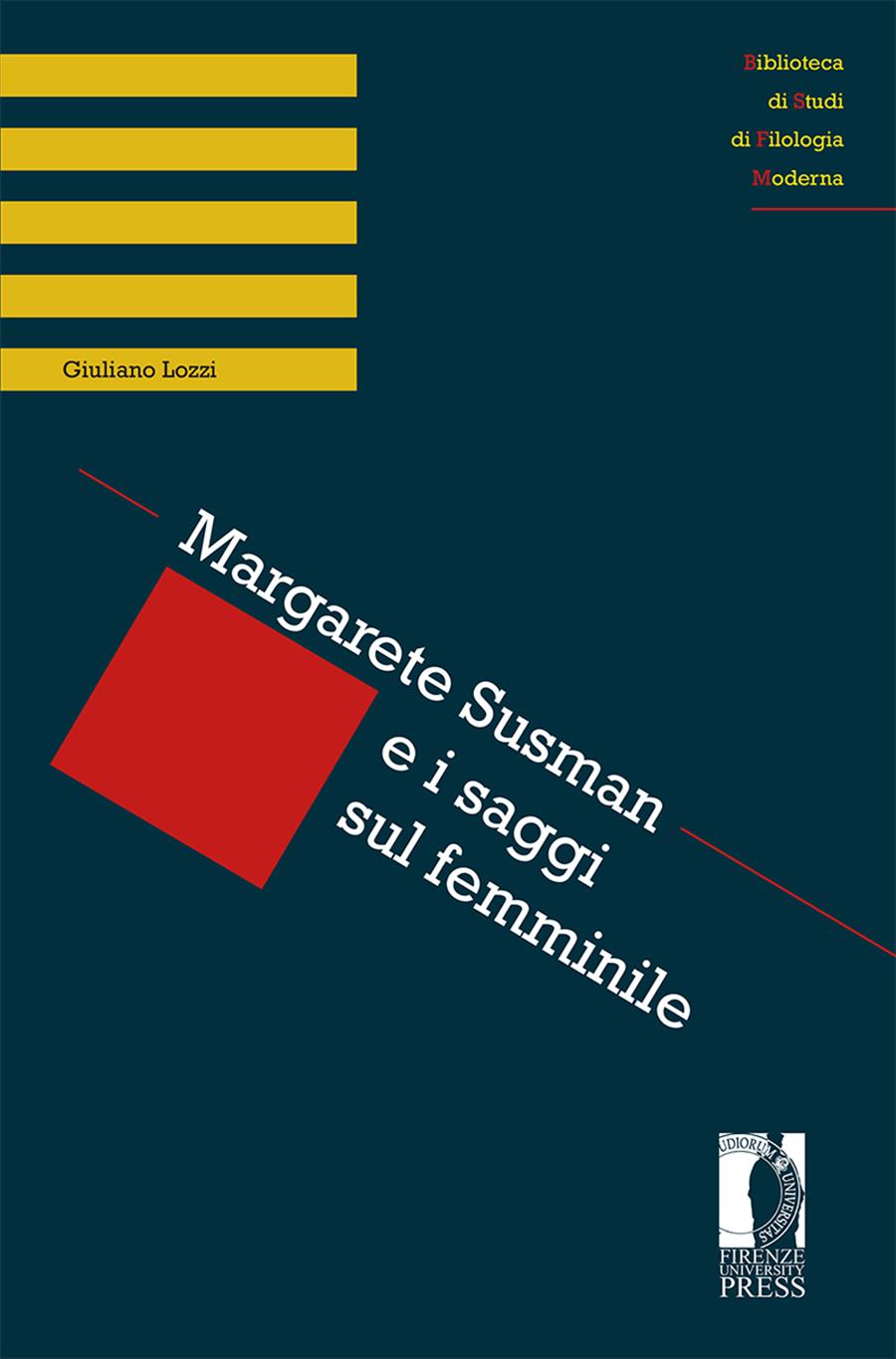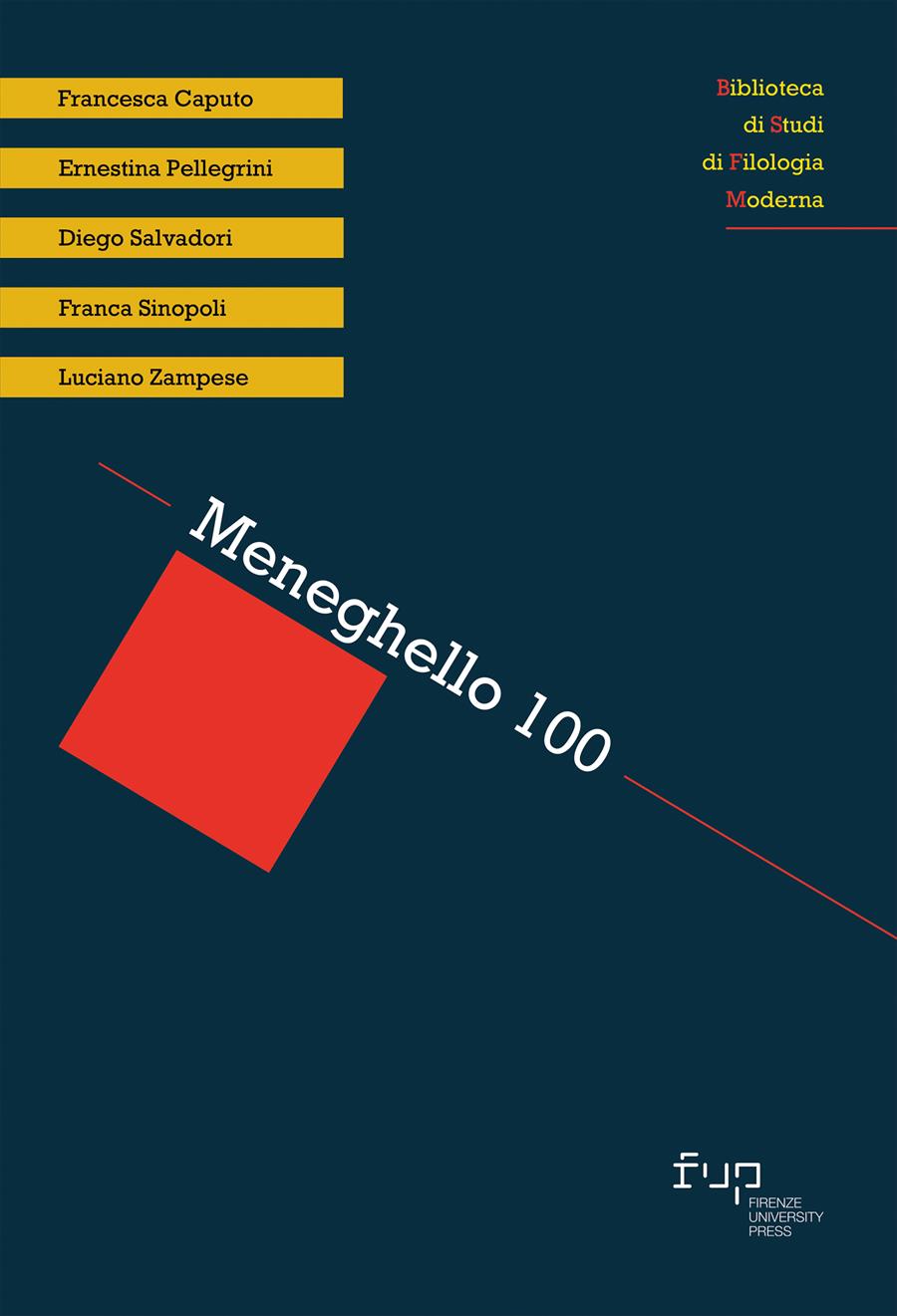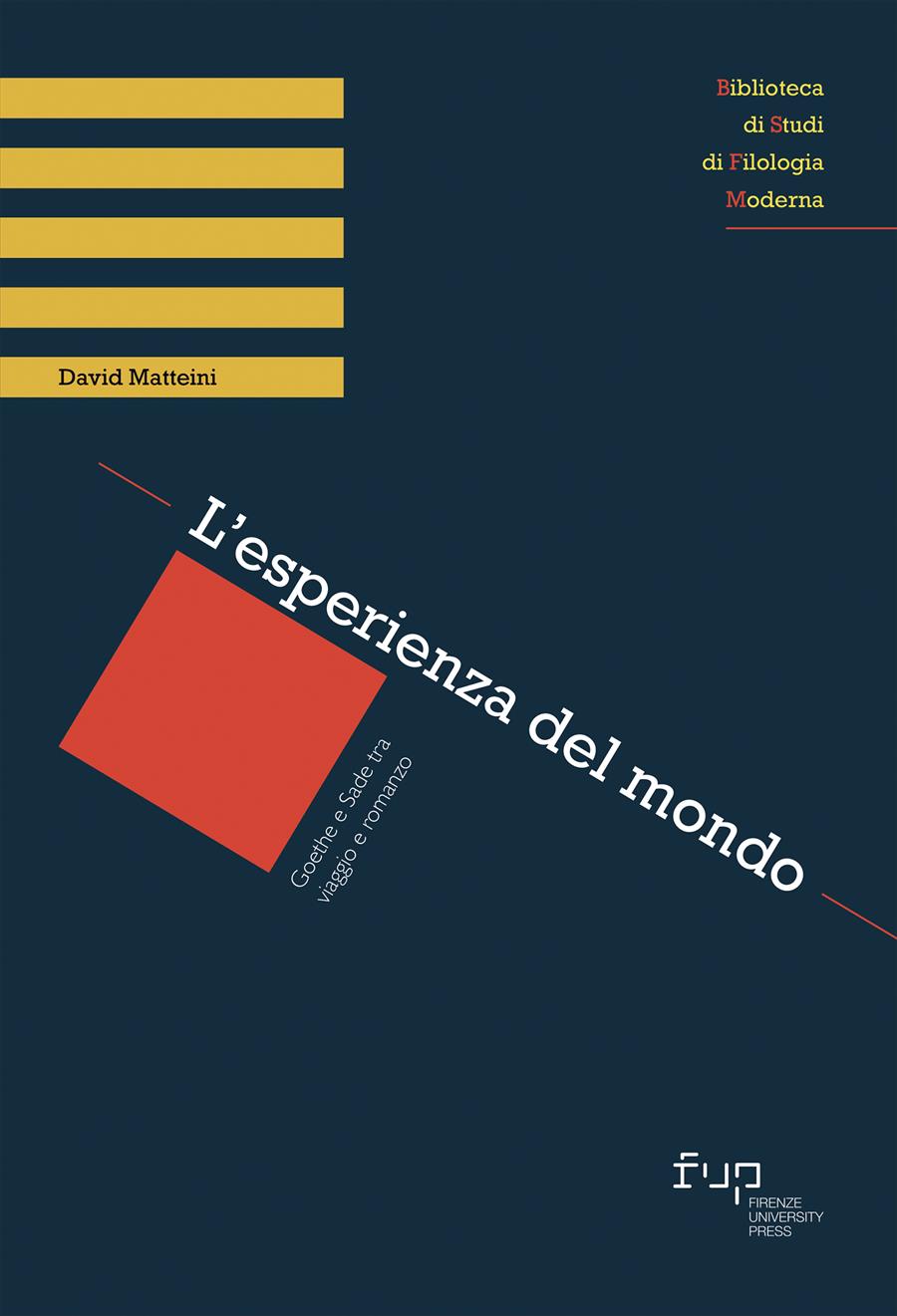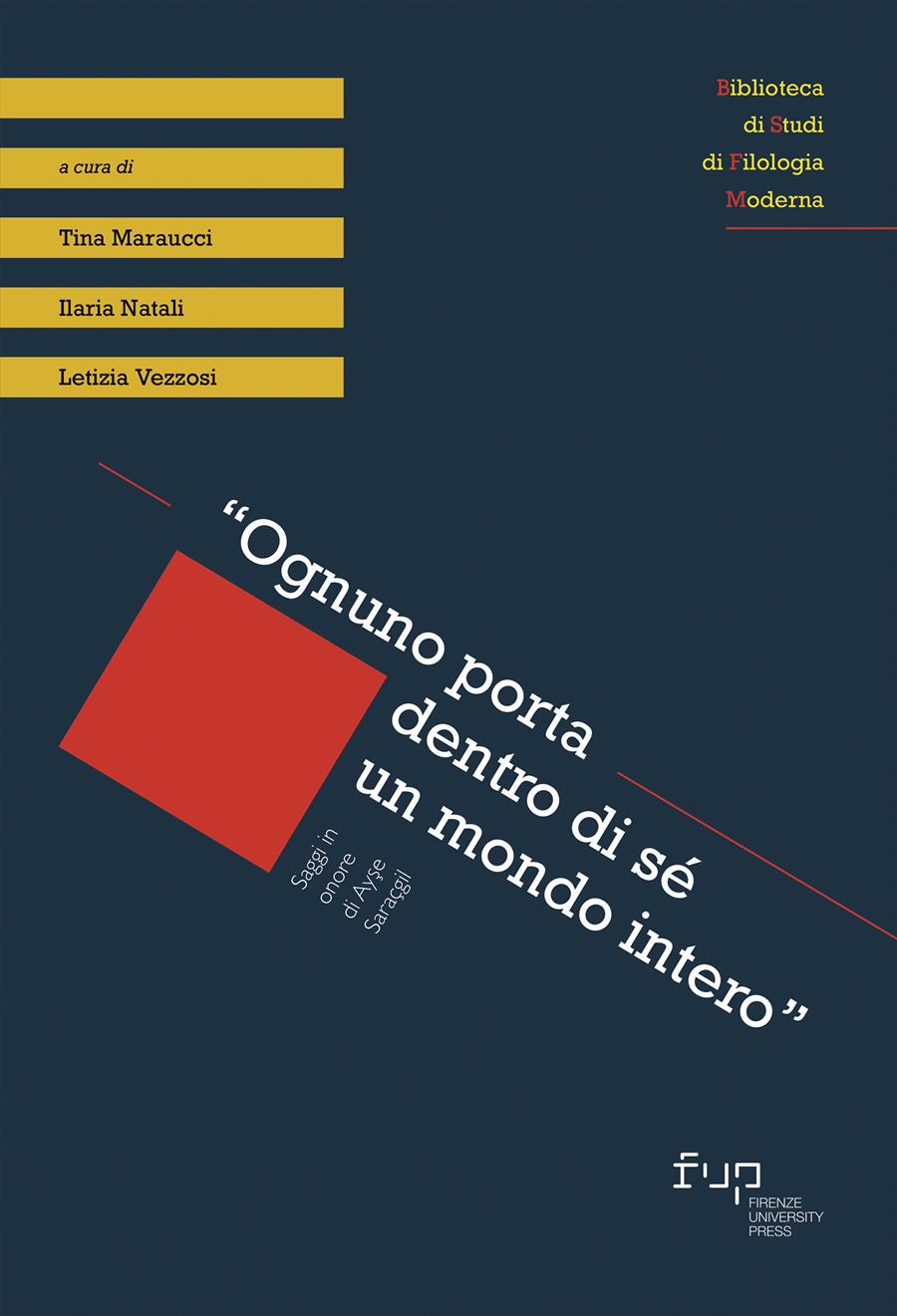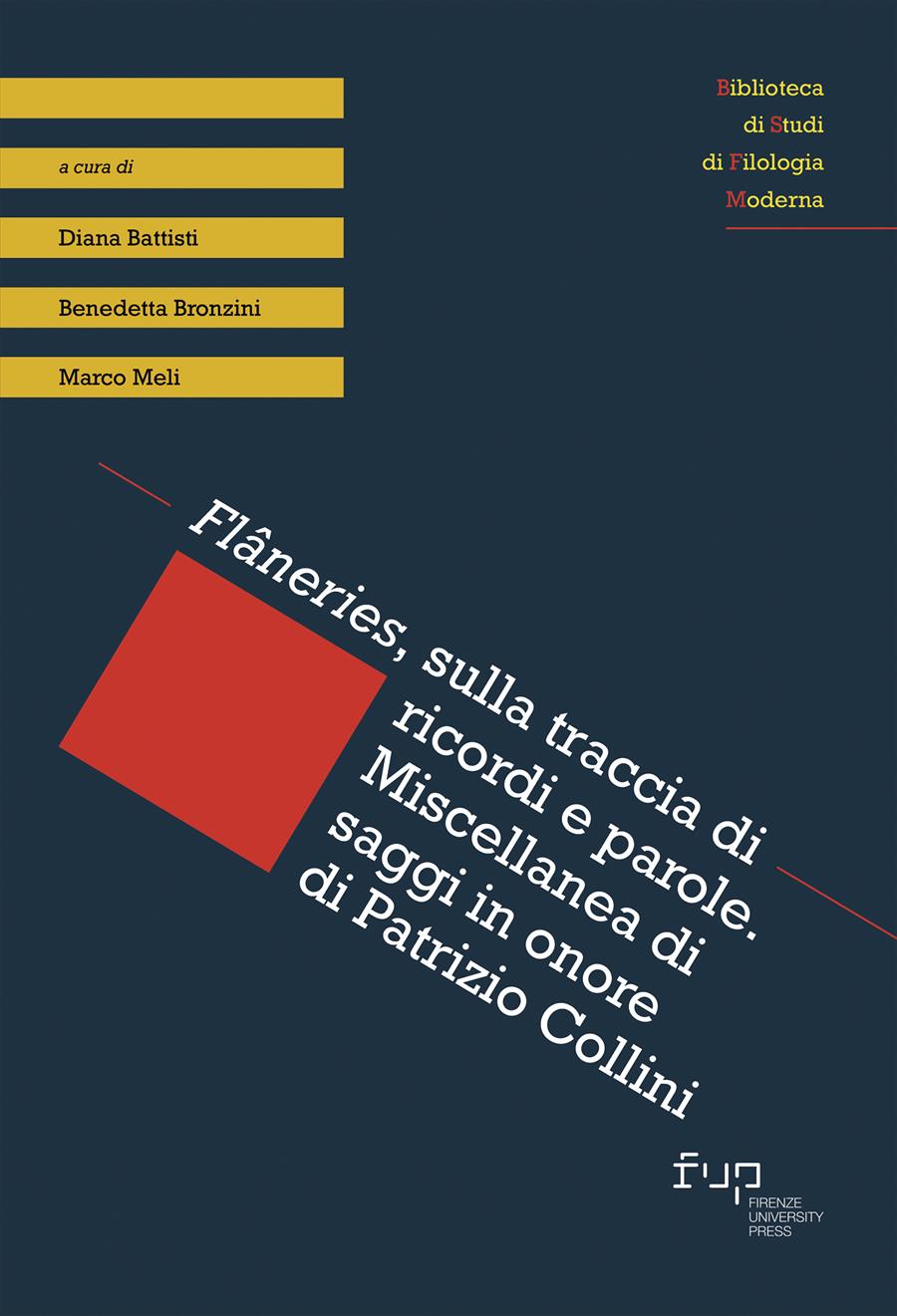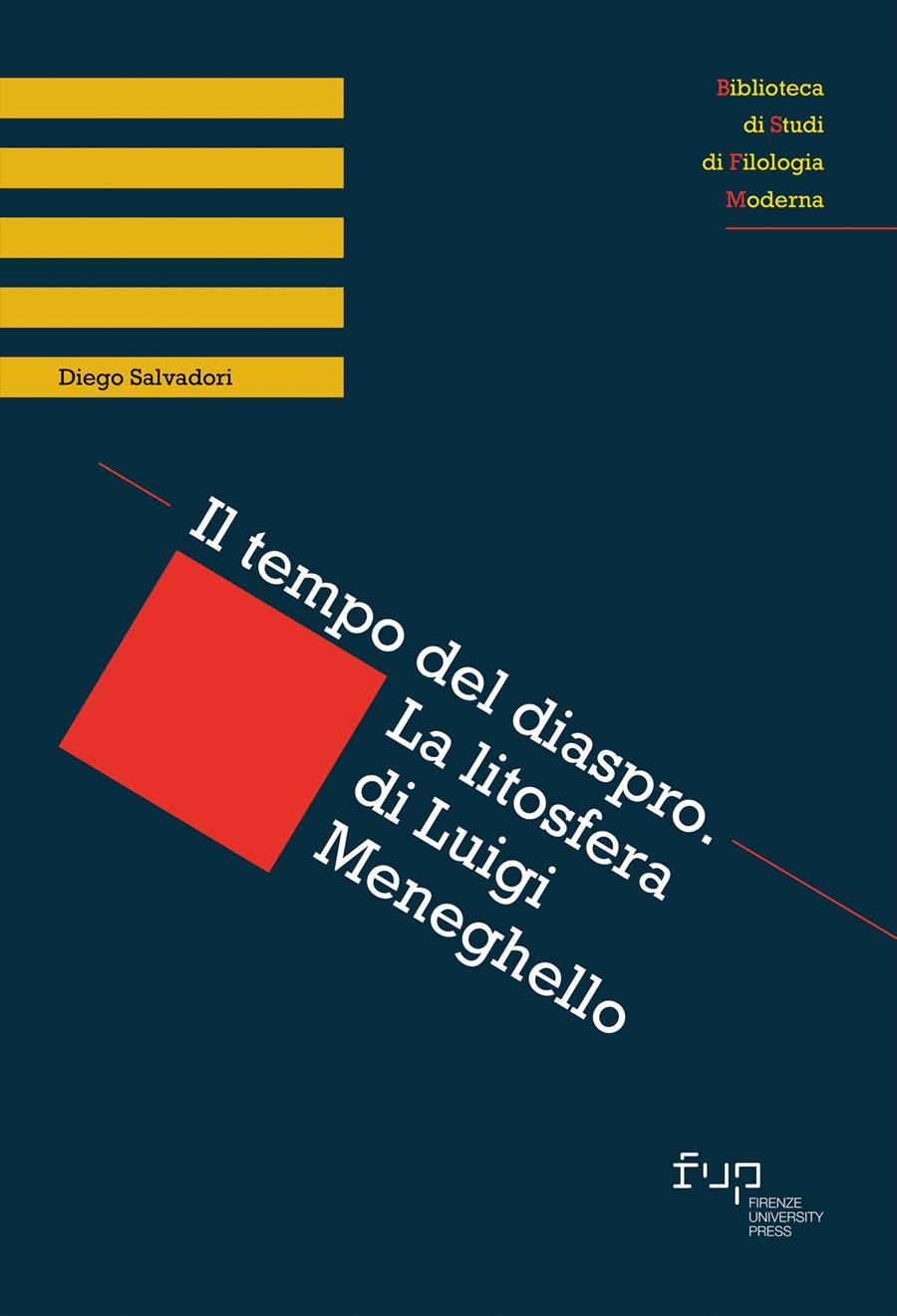Margarete Susman e i saggi sul femminile
- Giuliano Lozzi,
Margarete Susman (1872-1966), an important figure in German-speaking culture, was an essayist, Kulturtheoretikerin, philosopher, poet and painter. Her vast production - almost unknown in Italy - deals with a variety of topics: from literary criticism to interreligious dialogue, from the study of Romanticism to portraits of great personalities from the past and her time. This book investigates the 'feminine' in Susman from two points of view: from a formal perspective, it describes the path of a writer who, from the early 20th century, has moved between poetry and the essay, passing through the comparison with culture correspondence; from a thematic perspective, he examines the essays in which Susman deals with the sexual difference and the relationship between the 'male' and the 'female’.
- DOI: 10.36253/978-88-6655-914-6
- Series: Biblioteca di Studi di Filologia Moderna
- Scientific Board
- Language: Italian
- Subjects: German Literature
- Download PDF
-

- © 2015 Author(s)
- CC BY-NC-ND 3.0 IT
Tuscia University, Italy
- Publication Year: 2015
- Pages: 172
- eISBN: 978-88-6655-914-6
- Content License: CC BY-NC-ND 3.0 IT
- © 2015 Author(s)
- Publication Year: 2015
- eISBN: 978-88-9273-305-3
- Content License: CC BY-NC-ND 3.0 IT
- © 2015 Author(s)
Bibliographic Information
Book Title
Margarete Susman e i saggi sul femminile
Authors
Giuliano Lozzi
Peer Reviewed
Publication Year
2015
Copyright Information
© 2015 Author(s)
Content License
Metadata License
Publisher Name
Firenze University Press
DOI
10.36253/978-88-6655-914-6
eISBN (pdf)
978-88-6655-914-6
eISBN (xml)
978-88-9273-305-3
Series Title
Biblioteca di Studi di Filologia Moderna
Series E-ISSN
2420-8361
